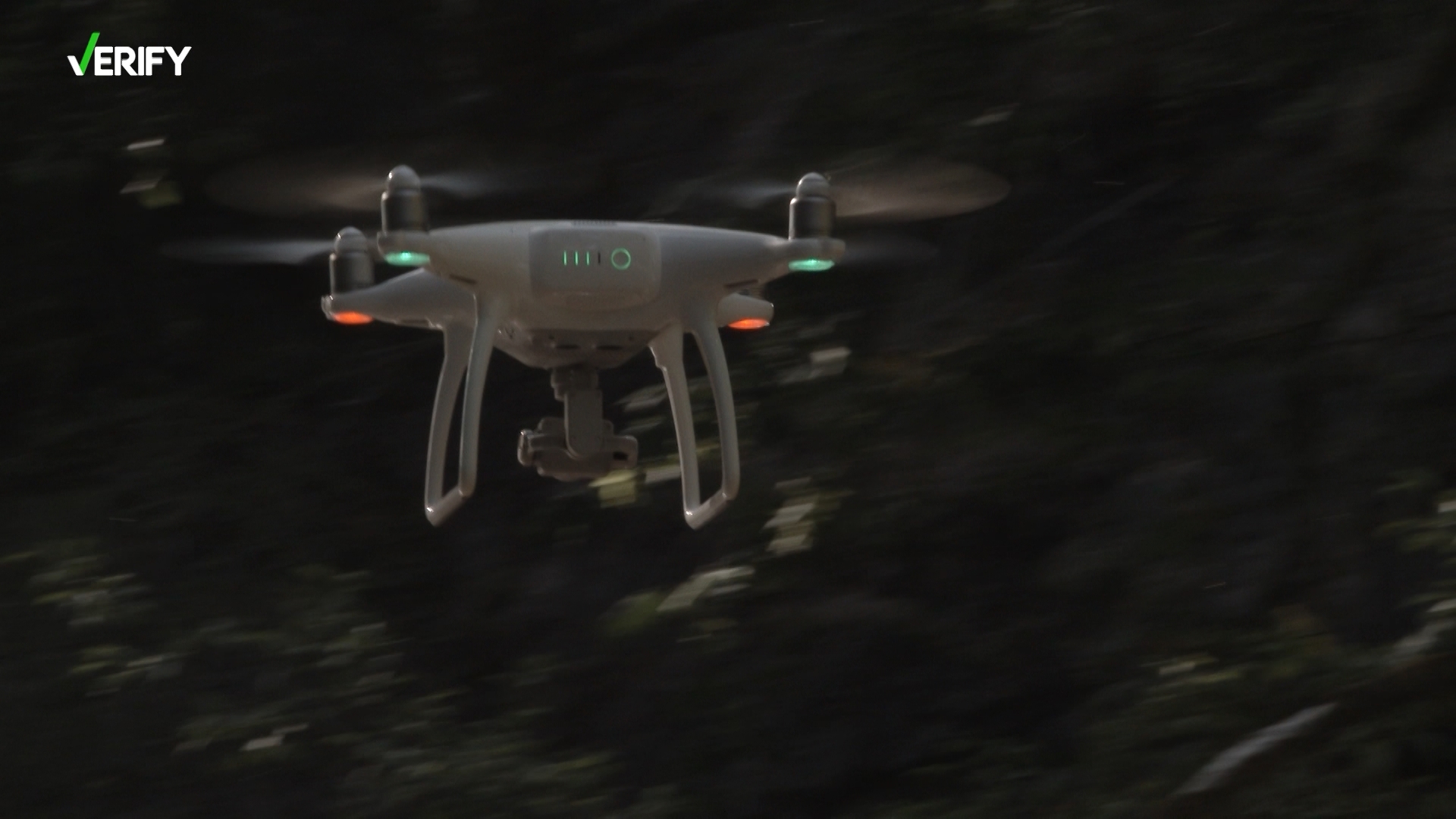HOUSTON — An online chat suggested the community of Bridgeland uses drones to collect information for citations.
Deed restrictions are a written agreement between the homeowner and the homeowners association (HOA) that sets the rules for a specific community. A violation of deed restriction in some cases could result in warnings or fines to the homeowner.
The KHOU 11 Verify Team reached out to the Bridgeland homeowner's association to ask if they collect information on its community to issue deed restriction violations. The homeowners association responded to the KHOU 11 Team confirming it does not fly drones to spot deed restriction violations.
THE QUESTIONS
- Does Bridgeland HOA fly drones to find deed restriction violations?
- Can Homeowners Associations in Texas fly drones to find deed restriction violations?
THE SOURCES
THE ANSWERS
- No, Bridgeland HOA does not fly drones to find deed restriction violations.
- No, Homeowners Associations in Texas cannot fly drones to find deed restriction violations.
WHAT WE FOUND
According to the Federal Aviation Agency (FAA) at the end of February 2024, there are more than 781,000 drones registered to fly with the agency. Of that figure, there are more recreational drones registered than commercial ones.
Operators who fly a drone for enjoyment will fall into the recreational category for usage. Under that designation, the FAA has rules that include all flyers to have basic knowledge of their limitations and restrictions. The FAA requires operators to take and pass a test to receive a certificate. That certificate must be presented to law enforcement if asked for. To find more information about the FAA test, and who qualifies to take it click here.
Commercial drone pilots are required to undergo a more intensive process to get certified to fly a drone by the FAA. According to the FAA, commercial drone operators can also qualify for certain waivers that could allow the commercial pilot to fly under conditions that include: flying over populated areas, operating the drone at night, and flying above certain altitudes where the operator or spotter loses visual of the drone.
While there are differences in the federal rules between what commercial and recreational drone operators are allowed to do, the FAA says payment for flying is not a difference maker between the two designations.
While the FAA handles the regulations of drones across the country, some states including Texas have laws that add additional protections to where drones can fly and what they are allowed to capture.
Homeowners can allow drones to be used to collect information, for example to insurance companies. According to real estate attorney Richard Weaver, "Texas law prohibits anyone from using drones for surveillance, but homeowners waive their rights if they give anyone consent to fly drones over their property or to peek into their backyards."
But if a homeowners association flies a drone to collect information with the intention of issuing citations in Texas without the homeowner's consent Weaver says, "That is surveillance and that is illegal."

